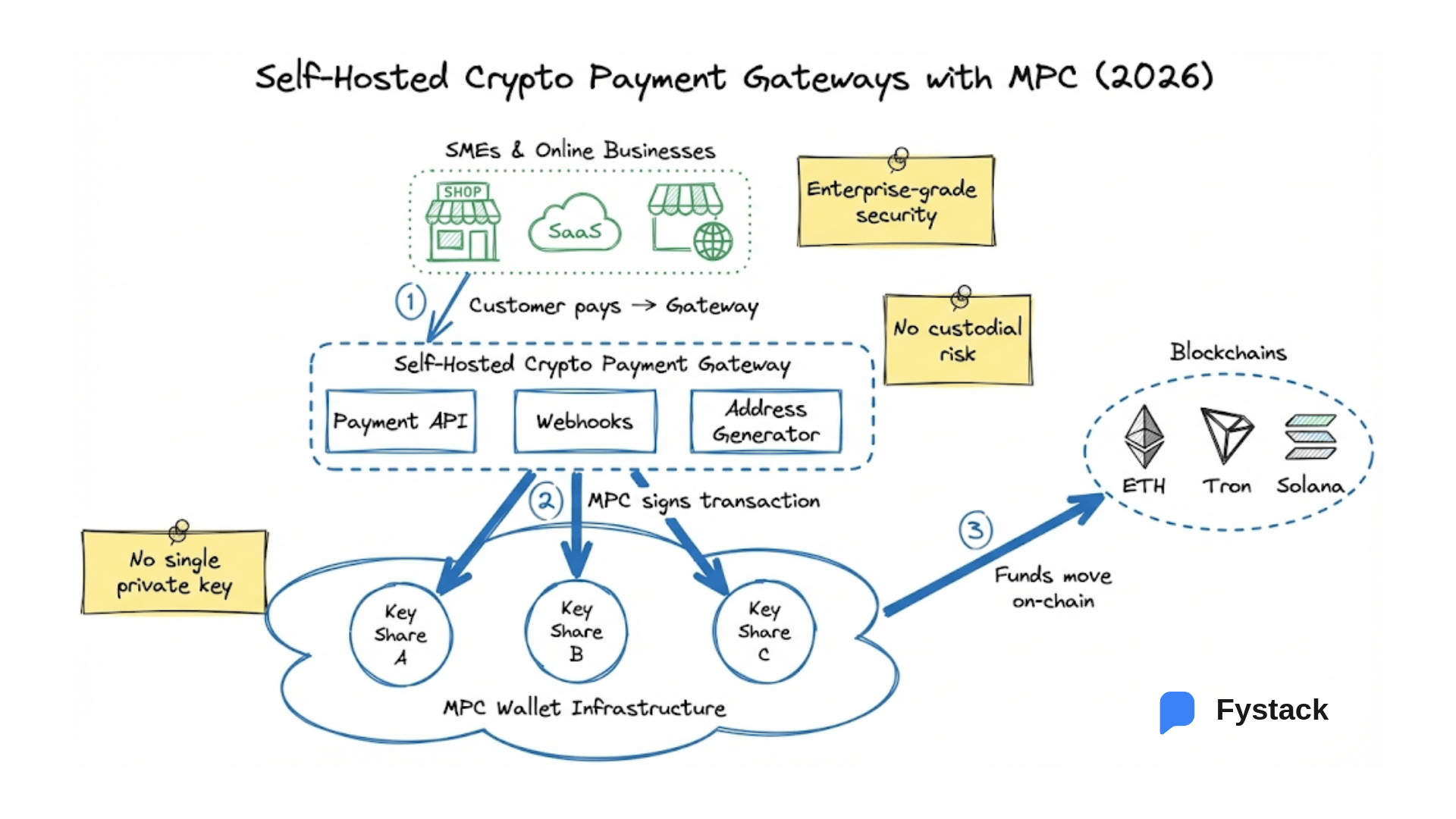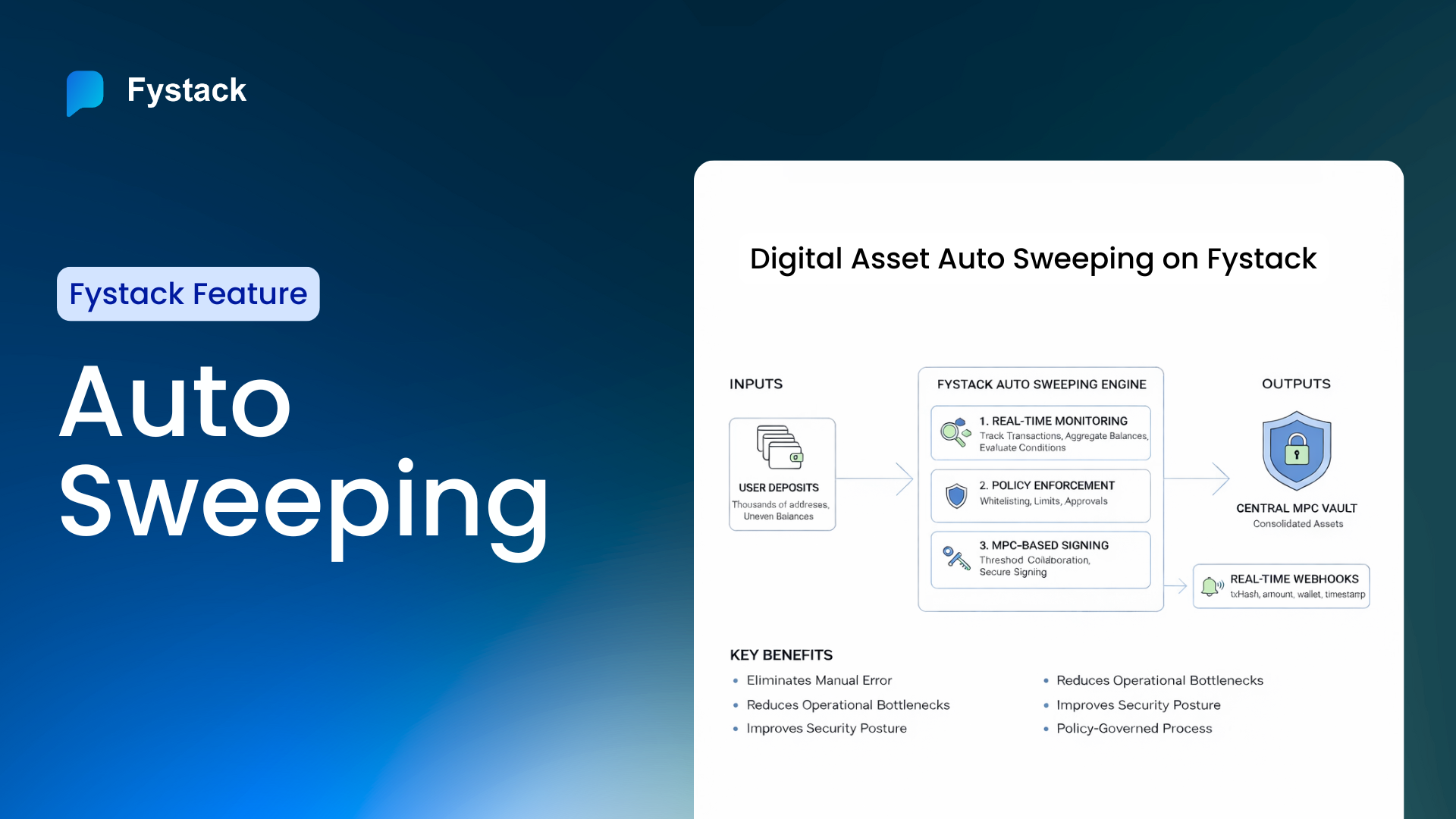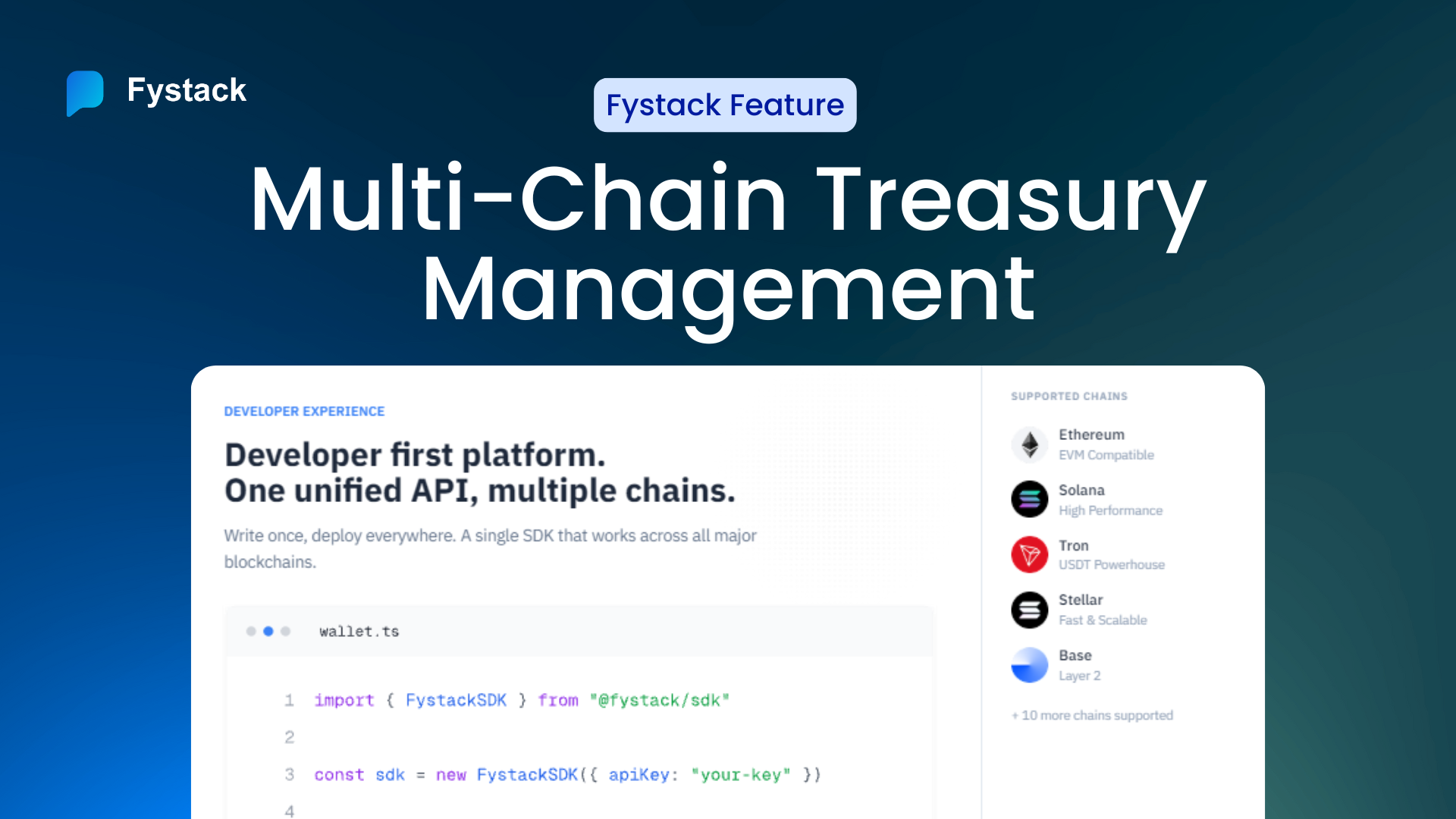Self-hosted MPC wallet infrastructure. Your keys, your coins.
Kristie Le
Author

As crypto companies grow and manage larger volumes of digital assets, secure and efficient wallet infrastructure becomes mission-critical. MPC Wallets have become the critical infrastructure for Enterprise-grade Web3 security, replacing legacy multisig setups.
Especially for Fintech companies looking to go on-chain, choosing the right custody model is the first step toward scalability. But once you decide on using MPC, there’s another key decision to make: Should you deploy the wallet infrastructure yourself (self-hosted) or use a hosted SaaS service?
TL;DR:
- If your team requires maximum control - due to regulation, internal security, or risk posture - a self-hosted MPC wallet setup may be more suitable.
- If time to market, operational efficiency, and ease of use are the priorities (especially for fast-moving startups), hosted MPC wallet services can offer a secure and developer-friendly alternative.
How Self-Hosted MPC Wallets Work
In a self-hosted setup, your team operates the MPC nodes. The key shares and signing logic are fully run within your infrastructure (cloud, hardware, or hybrid). You control how shares are stored, where signing happens, and how to monitor the system.
Self-hosted MPC wallets offer the potential for complete control over wallet operations. This comes with notable advantages in compliance and customization but also introduces operational complexity.
Pros:
- No Vendor Lock-In: You own the full stack: keys, infrastructure, and policy engine. You can migrate systems, switch vendors, or restructure operations without needing your users to change wallets or addresses.
- Custom Integration: Ideal for teams with complex systems or internal workflows. You can deeply integrate the wallet infrastructure into your signing logic, treasury operations, compliance stack, or risk engine with flexibility.
- Data Privacy & Control: No external party observes or participates in your signing process. For companies dealing with sensitive client data or strict data governance rules, this setup can align better with internal policies.
- Reduce Counterparty Risk: There’s no risk of a provider mishandling key material or experiencing a breach that affects your assets. Key shares and signing logic stay within your control.
- Compliance & Data Residency: Certain regulatory frameworks require or imply that custodians store the keys in a specific geographic location. Navigating frameworks like MiCA or GDPR is complex; for a full breakdown, check out our guide on 2025 Crypto Regulatory Compliance for Web3 & Fintech Startups. If you rely on a SaaS-based infrastructure outside of these regions, you might risk losing market access.
- Operable totally offline: in environments with stringent security requirements, an air-gapped system is necessary to mitigate external attack vectors.
Cons:
- Higher Operational Burden: Your team is responsible for deploying and maintaining infrastructure.
- Expertise Needed: Need in-house security/crypto expertise to handle key material and updates.
- Longer integration time: Getting a production-ready, secure setup in place takes time. For teams racing to market, this delay could slow down product deployment or new feature rollouts.
Ideal for:
- Custodians or exchanges needing full compliance control
- Enterprises with strict security policies or internal regulations
- Teams with DevSecOps resources and experience running secure infrastructure
Teams can either build everything from scratch or use a provider’s licensed solution (like Fystack’s ) to self-host. The second option is increasingly common, as it reduces development burden and avoids the need for deep in-house cryptography expertise.
For developers who want to test the waters immediately, we released Fystack Ignite: An Open-Source tool to Self-Host a Full-Fledged Custody Platform with just one command line. This allows your DevOps team to experience the power of MPC without the upfront integration heavy-lifting.
Fystack’s wallet infrastructure is built on top of mpcium , our open-source MPC engine designed for developers and DevOps teams.
Our MPC nodes are easy to set up, production-ready, and optimized to reduce the barriers of working with complex cryptography. You don’t need to be a cryptography expert to run secure, high-availability MPC wallets.

With Fystack, teams can deploy secure MPC wallt infrastructure within days without the need to spend months or years researching cryptographic protocols or building from scratch. This significantly reduces development time and effort, allowing teams to focus on delivering core product features rather than reinventing wallet security.
Self-Hosted vs SaaS MPC Wallet Comparison
Self-Hosted MPC Wallet | SaaS / Hosted MPC Wallet | |
Control | Full control over infra and policies | Control over wallet & policies, not infra |
Setup Time | Weeks to months (Days with Fystack) | Hours to days |
Compliance Flexibility | High (can meet specific data residency rules) | Depends on provider's infra & regions |
Operational Overhead | High (infra, uptime, updates, security) | Low (provider handles operations) |
Customization | Full (can tailor to complex needs) | Limited to what provider exposes |
Security Model | You own and secure everything | Non-custodial by design, but infra is shared |
Costs | Higher upfront and ongoing maintenance | Lower upfront, subscription-based |
Scalability | Depends on in-house infra capacity | Scales with provider's infra automatically |
There’s no one-size-fits-all answer. However, the market is shifting. To understand the detailed trade-offs between a self-hosted solution like Fystack and a custodian like Fireblocks, read our deep dive: Fystack vs. Fireblocks: What is the Future of Crypto Asset Custody?
Additionally, if you are evaluating the broader market landscape, we have compiled a list of the Top Non-Custodial Solutions for Stablecoin Businesses (2025 Edition) to help you benchmark different providers.
Launch Your MPC Wallets With Fystack
There’s no one-size-fits-all answer. Self-hosted MPC gives you maximum control and flexibility, but comes with more responsibility. Hosted MPC services let you ship faster with lower overhead, but trade off some control.
Fystack offers both fully managed SaaS and self-hosted MPC wallet infrastructure, giving teams the flexibility to choose the best fit, whether optimizing for speed, scalability, or control, without needing to worry about the underlying cryptographic complexity.
Sign up at fystack.io to create your first secure MPC wallet.
📚 Further Reading on MPC Landscape
Staying updated with the rapid changes in custody technology is essential. Here are some curated resources to deepen your understanding:
- Market Trends: Catch up on the huge shifts in the industry with our MPC Wallet News 2025 Recap & Updates.
- For Fintechs: Why traditional finance is moving to MPC Wallets for on-chain operations.
Join Our Developer Community
Want to dive deeper into blockchain infrastructure, wallet engineering, and Web3 security?
Join our Fystack Developer Community on Telegram to get engineering insights, architecture breakdowns, and development resources directly from our team.



